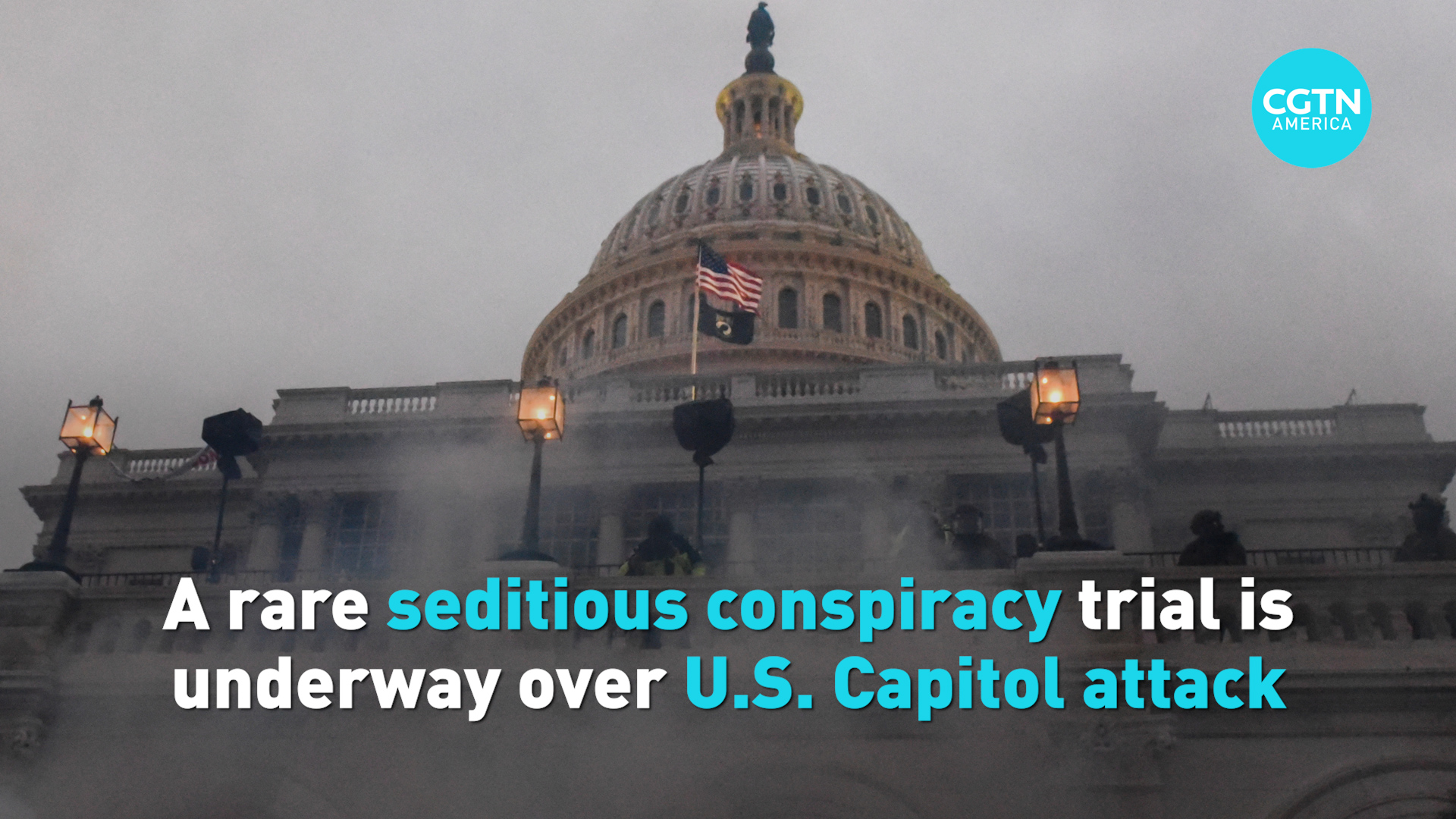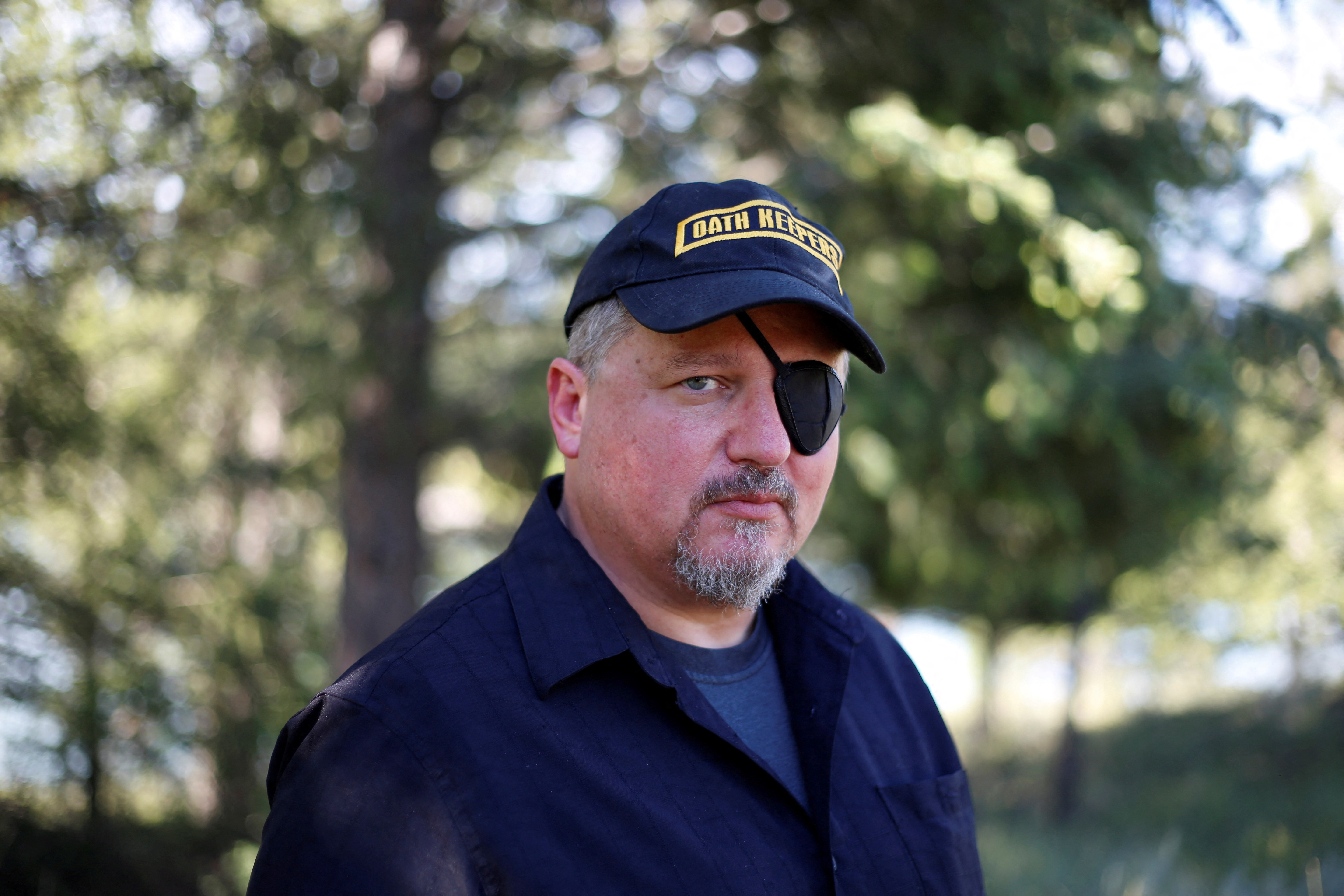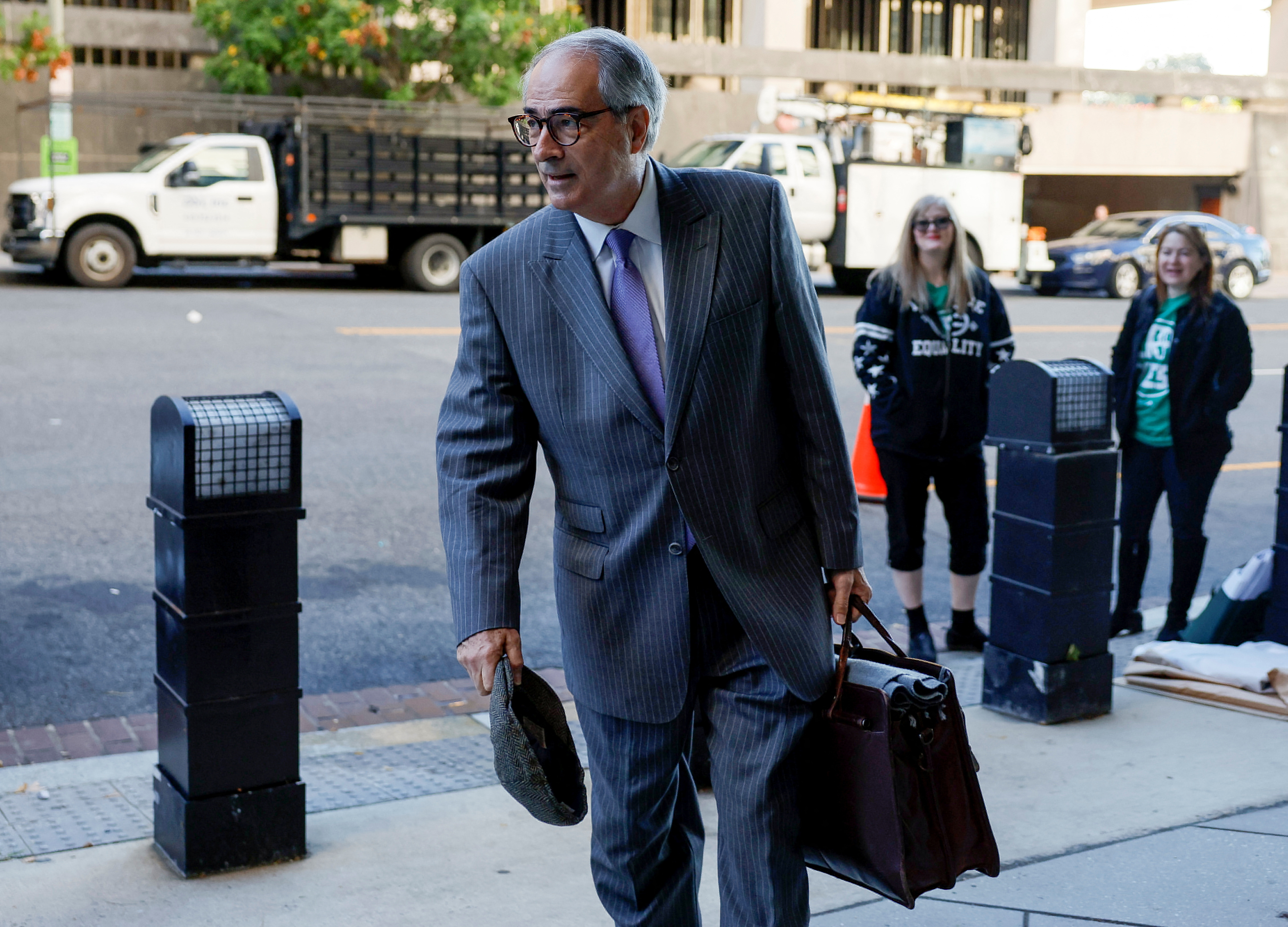
The founder of the Oath Keepers and four associates will stand trial for their role in Jan. 6th, 2021 attack on the U.S. Capitol. They face charges of obstruction, including seditious conspiracy, a rare Civil War-era charge.
Oath Keepers founder Stewart Rhodes and his associates are the first Jan. 6 defendants to go on trial on seditious conspiracy charges as the prosecution claims it was not a spontaneous riot but a planned scheme to thwart the transfer of presidential power from then-President Donald Trump to Joe Biden.
Prosecutors say Rhodes and his far-right extremist followers spent weeks planning to use violence to prevent Joe Biden from becoming president. According to officials, Rhodes collected weapons, assembled armed squads to be ready outside of the city in case they were required, and recruited people to travel to Washington D.C. During the riots, Oath Keepers were seen on tape pushing through a crowd of President Donald Trump's supporters and attacking the U.S. Capitol in a military-style stack formation.
Three other Oath Keepers have already pled guilty to seditious conspiracy; they are cooperating with authorities, and they might testify against Rhodes in court. In court records, Rhodes' attorneys have argued that the Oath Keepers are lying and merely confessed under pressure from the government in the hopes of receiving reduced penalties.
The stakes are high for the U.S. Justice Department in this trial, which hasn't prosecuted a case involving a seditious conspiracy in ten years and hasn't achieved a conviction since the 1995 case involving Islamic militants who planned to destroy New York City landmarks. The last trial to have been won involving a seditious conspiracy was in 1995 when Islamic militants were convicted for planning to bomb New York City landmarks.
The trial, which is anticipated to last several weeks, began with the jury selection on Tuesday.

Oath Keepers militia founder Stewart Rhodes
Oath Keepers militia founder Stewart Rhodes

Lawyer for Oath Keeper Thomas Caldwell arrives at court for jury selection in the trial on seditious conspiracy charges for the Jan 6 attack on the U.S. Capitol in Washington D.C.
Lawyer for Oath Keeper Thomas Caldwell arrives at court for jury selection in the trial on seditious conspiracy charges for the Jan 6 attack on the U.S. Capitol in Washington D.C.
What is a seditious conspiracy?
After the U.S. Civil War ended in 1865, the law was enacted to detain Southerners who might continue to oppose the American government. In order to succeed in a seditious conspiracy case, the prosecution must show that two or more individuals planned to use force to overthrow, put down, or destroy the United States government, start a war against it, or to resist the government's authority or prevent the enforcement of a law.
What Rhodes and his followers are charged with is conspiracy to obstruct the enforcement of laws governing the transfer of presidential power and to violently reject the legitimacy of the federal government.
What would be the sentence?
If found guilty, seditious conspiracy carries a maximum sentence of 20 years in prison. Numerous other significant allegations have also brought against Rhodes and his collaborators.
When did the last seditious conspiracy take place?
The U.S. Justice Department last tried a seditious conspiracy case in 2010, involving an alleged Michigan plot by Hutaree militia members to incite a civil uprising against the government. The group was exonerated because the prosecution relied too heavily on circumstantial evidence.
The Oath Keepers are not the only ones facing legal repercussions for the Capitol riot. There have been at least 919 people arrested and charged with offenses related to the attack on the U.S. Capitol.
For more, check out our exclusive content on CGTN Now and subscribe to our weekly newsletter, The China Report.

